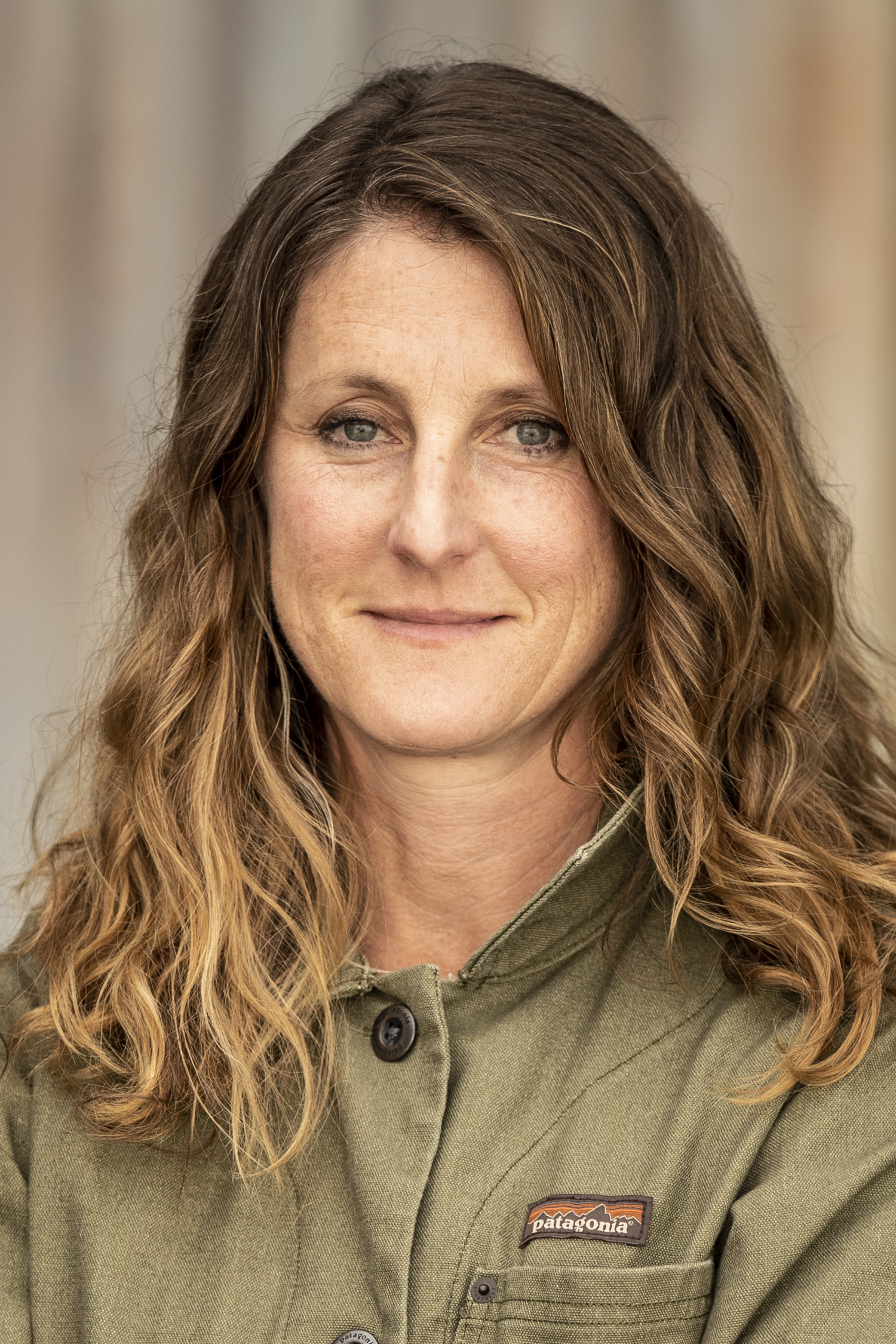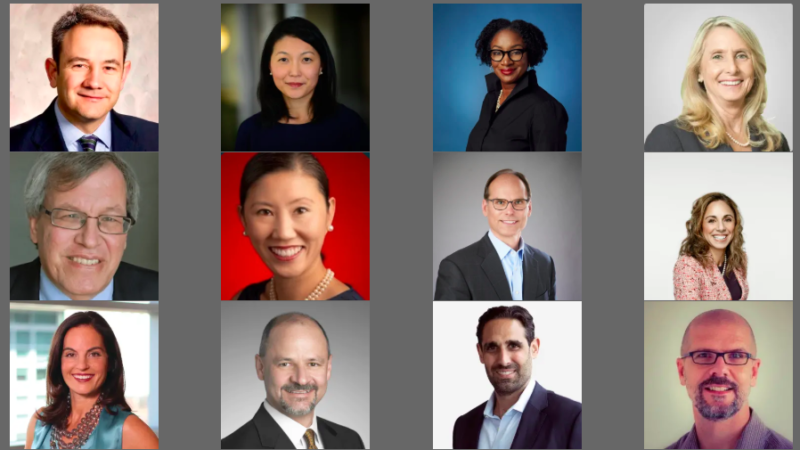We continue our monthly feature, “Upfront & Personal”, a column created by Rose Ors that brings “the person behind the title” to the forefront in interviews with some of the most influential members of the legal community
Hilary Dessouky, general counsel at outdoor clothing retailer Patagonia, recently spoke to Ms. Ors, the CEO and Founder of ClientSmart, about giving back, value-sharing, and becoming a benefit corporation.
Rose Ors: What is a childhood memory that brings you joy?
Hilary Dessouky: Every year from first through eighth grade, I was in A Christmas Carol. I loved everything about it. The story of redemption and generosity and choosing to live a more fulfilled life by giving back resonated then and now.
I loved the tradition of doing the show every year. I loved the community that came together to put it on.
Rose Ors: What are you most proud of about the way you live your life?
Hilary Dessouky: I have the good fortune of having a career that is totally aligned with my values. Fighting to protect the planet has been a long-held personal commitment, one I get to put into action every day at Patagonia. I also get to share what I do and why I do it with my two young daughters. I want them to know that doing good and doing well are both possible.
I am also proud and grateful that I get to have an amazing career and still be fully present for my family. Patagonia’s on-site childcare program has been a huge part of that.
Rose Ors: How so?
Hilary Dessouky: Our on-site childcare is used by both fathers and mothers. Men, women, senior leaders, and new hires can see each other feeding their babies or having lunch with their toddler. We all know one another’s kids, which fosters a real sense of family at work. Since the facility closes at 5:30 pm, parents leave work to pick up their children at the same time — and in time to get home for a family dinner. There is no stigma.
The impact is that everyone knows that their career will not be derailed because of family obligations. It makes Patagonia a more fair and humane place to work.
Rose Ors: What has been the most significant moment in your career?
Hilary Dessouky: Hands down it was the 2016 presidential election. At Patagonia — a company that has spent the last 45 years doing everything possible to help protect the planet — the renewed threat to everything we’d worked for was deeply troubling. It caused me personally to re-examine how our legal team could expand our reach and use our training, experience, and skills to advance the company’s mission.
Rose Ors: Patagonia sued President Trump in 2017. Was that prompted by this change in mindset?
Hilary Dessouky: Absolutely. Litigation is a tool we have, so we’ll use it where we can. The health of our business and the planet is inextricably tied to the preservation of the outdoor recreation provided by public lands, including national parks and monuments.
For more than 30 years, we have worked to protect public lands throughout the country. So, when President Trump issued a proclamation reducing Utah’s Bears Ears National Monument by 85%, we joined Native American and environmental groups in a lawsuit challenging the president’s actions.

Rose Ors: Patagonia recently changed its mission statement to: “We’re in business to save our home planet.” How does that differ from the original mission statement?
Hilary Dessouky: Our founder, Yvon Chouinard, and our CEO, Rose Marcario, felt strongly that Patagonia should focus on the urgent need to do more good, not just less harm. So, our mission statement changed from, “Build the best product, cause no unnecessary harm, use business to inspire and implement solutions to the environmental crisis” to, “We’re in business to save our home planet.” The entire company immediately became an army of environmental activists.
The shift in emphasis also changed how I think about my role as the company’s general counsel and the role of our legal department. Before I came to Patagonia, I viewed the in-house legal role primarily as helping a company achieve its business objectives and increase sales and profits by managing risk in the context of financial impact. Patagonia is a benefit corporation, so we also look at how decisions we make impact not just our financials, but also the environment, our employees, and our community. And now today, I’d say the weighting has tilted in favor of the planet. As it turns out, every decision we make that puts the planet first is also good for sales.
The wider lens has led us to become more politically active and take a company position in support of candidates with a strong environmental record. In 2018, Patagonia became the first corporation to publicly endorse two U.S. senate candidates — Jacky Rosen (D-Nev.) and Jon Tester (D-Mont.) — for their conservation advocacy.
This involved a lot of interesting legal work, including navigating the arcane and complicated network of federal and state campaign finance laws. It was worth it. Both candidates won by a small margin that we hope we helped deliver.
Rose Ors: How has your CEO influenced how you think about your role today?
Hilary Dessouky: Rose has had a huge influence in how I think about impact and risk. She doesn’t hold back on anything and is totally comfortable taking risks when it comes to the greater good. Her guidance for me centers around how our legal department can advance the company’s mission. On the traditional legal work, she trusts that we are on top of it.
Rose Ors: Do you talk with your daughters about Patagonia’s mission and activism?
Hilary Dessouky: Yes — all the time. My fourth grader can tell you what it means to be a benefit corporation. Her answer when I asked her was: “Well, it’s a company that takes care of the environment and does good things for the community and also pays its workers better.” That is pretty spot-on, so I had her write it down. When she did, she crossed out “pays workers better” and changed it to “pays workers fairly.” She really put some thought into this!
They have also become political junkies at an early age and are looking forward to joining me this fall canvassing for candidates who put climate first. One of my proudest moments as a parent was seeing them lead their friends out of elementary school for the climate strike and march along with Greta Thunberg and millions of youth around the world this past September.
They will grow up caring deeply about the planet and standing up for what you believe in. The world will be better in this next decade because of it.
Rose Ors: Now for my final question. Aside from legal acumen, how can outside law firms add value for their corporate clients?
Hilary Dessouky: Figure out what your clients stand for and believe in and find ways to support that. At Patagonia, we hire law firms that have demonstrated support for the environment. For example, Hogan Lovells has done an amazing job in representing us and our co-plaintiffs pro bono in the Bears Ears National Monument litigation. Their investment in that work will be reciprocated in more billable hours from us.
We also prioritize firms who are benefit corporations or members of the One Percent for the Planet, a non-profit that certifies companies that have made a commitment to give away 1% of their sales every year to support environmental nonprofits. To date, 1% members have donated more than $225 million to grassroots environmental groups. We also hire firms like Coblentz Patch Duffy & Bass which has made a commitment to advance women in their firms and in the legal industry.
Every company will have their own values-based focus. But for Patagonia, we look for law firms that — in addition to excellent results — have values that align with ours.






